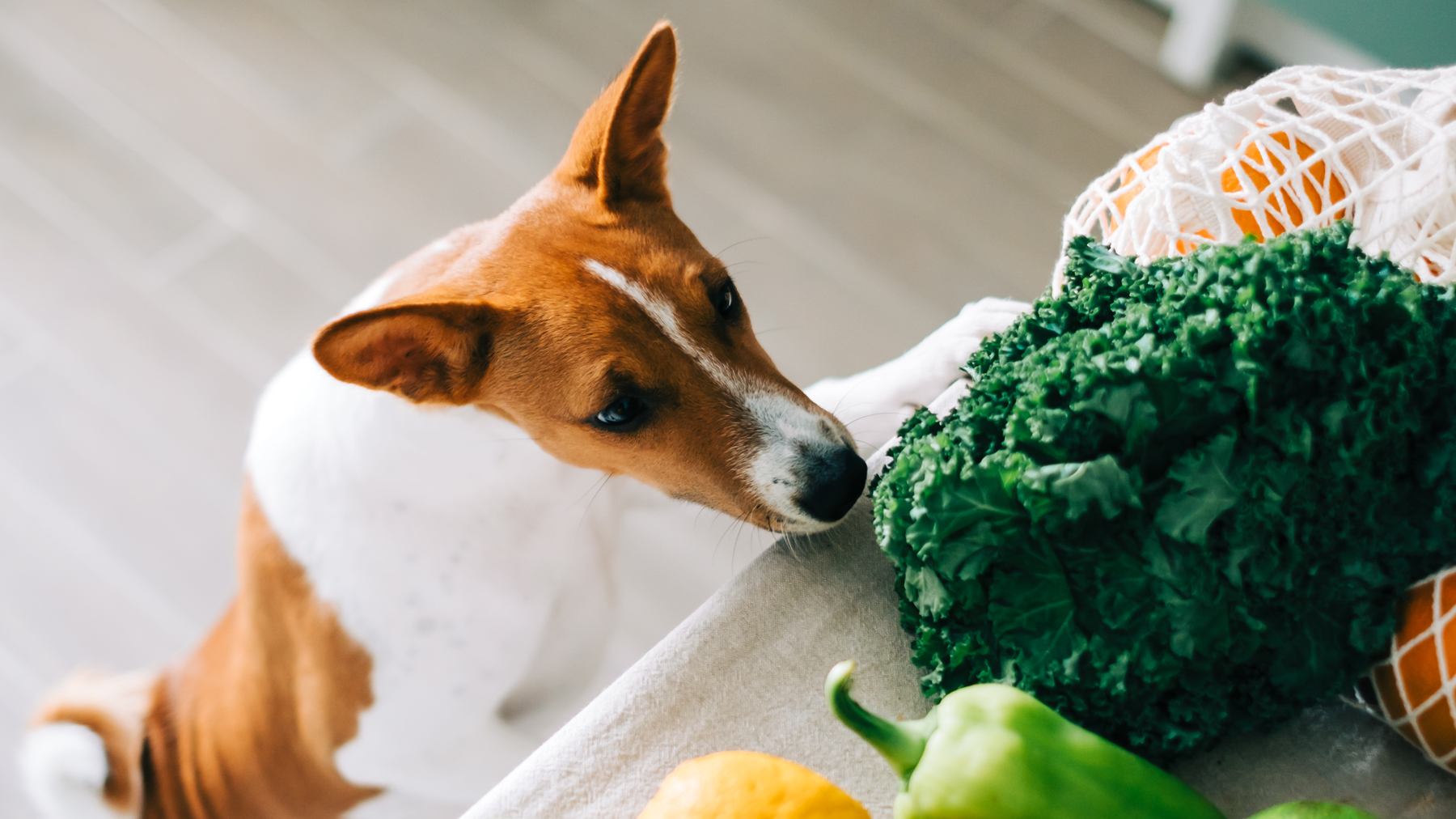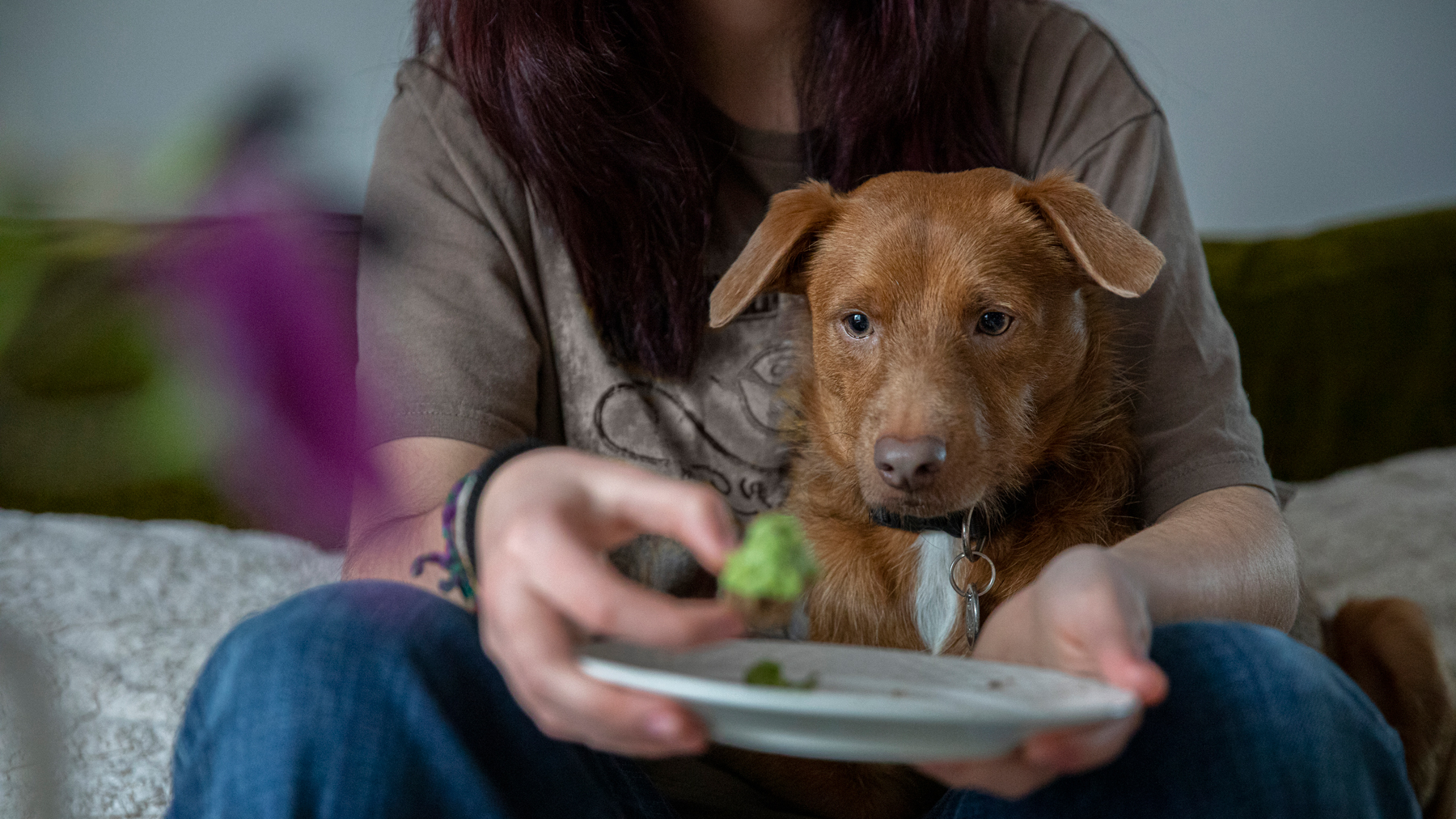Eight surprising vegetables you can give your dog
These surprising vegetables you can give your dog are great for keeping your canine healthy and can help reduce your household waste

Get the best advice, tips and top tech for your beloved Pets
You are now subscribed
Your newsletter sign-up was successful
We share lots of things with our dogs, from a home to walks, to playtime, and even downtime in front of the TV. This is because they become family, right? So it’s no wonder you wish you could share meal times with them too. Fortunately, this isn’t totally ruled out, just take a look at these surprising vegetables you can give your dog.
Of course, your dog’s diet should primarily be the best dog food, or it may look more like an alternative cooked diet that has been recommended by a professional for your canine. But just like we benefit from the various nutrients packed into various veggies, so can our pooches.
It’s often cheaper to buy vegetables in bulk so next time you don’t manage to get through that big bag of spinach or you tire of sweet potato, your pup can get his teeth into some and save you from throwing them in the trash.
As with everything, the surprising vegetables below that we can feed our dogs should be consumed in moderation. You’ll also want to be wary of how you prep and cook veggies for feeding to your dog. This is why we’ve left some tips on this before revealing eight surprising dog-friendly vegetables.
How to prepare vegetables for dogs to eat
It’s best to strip things back to basics when prepping veggies so they are suitable for your dog to eat. Baking, frying, and roasting vegetables in lots of butter or oils and at high temperatures will lead to the loss of the important nutrients contained in veg.
Simply, lightly cooking such as steaming, boiling, and blanching, is a great way to prep veggies so that they can easily be chewed and digested by your pooch. Pureeing vegetables is also a great way to feed them to your dog. Depending on the vegetable and how hardy or sizeable it is, you should consider pulverizing the veg so that your dog can easily consume it and avoid the risk of choking or indigestion.
Now let’s get onto the interesting part…
Get the best advice, tips and top tech for your beloved Pets
Eight surprising foods you can give your dog
1) Broccoli
Perhaps you’ve found yourself asking can dogs eat broccoli after buying way too much of it for Thanksgiving. The answer is yes, but don’t go crazy and feed your pup too much of these small green and leafy trees. It’s not bad to have it raw but it’s easier to digest when steamed or blanched and chopped up finely.
It contains a selection of healthy vitamins like potassium, Vitamin C and Vitamin K, which will help develop bone density and strength. However, broccoli shouldn’t be fed to canines in high quantities as it does contain a substance named isothiocyanate, which according to the American Journal of Physiology can be harmful to dogs.
2) Kale
Similarly, kale is packed with beneficial benefits such as vitamin K, vitamin A, and iron. These are also good for bone health and support vision and immune function.
Chopping up or pureeing kale will make digestion of it easier for your four-legged friend. Too much kale can lead to deficiencies so it’s a good idea to serve kale with a meal as opposed to on its own. To avoid any protein deficiencies (kale is low in amino acids) you should serve it with a source of protein to keep your dog filled up on all the right nutrients.
3) Beets
This vibrant and colorful root veggie will have your dog taste the rainbow and have them top up on vitamin C, manganese, potassium, folate, and fiber. These ingredients will assist your canine’s digestion and immune system and aid skin and coat health.
As with all veggies, you should give your beets a good scrub before prepping for your pup. Then you’ll want to puree or mash them so they’re soft and easy to digest.
4) Celery
Celery packs in an excellent crunch for your hungry pooch and is made up of 95% water making it a great snack for hotter temperatures. Containing, the likes of vitamin A and vitamin C, means it offers up antioxidants for your dog.
Again, feed your dog celery every so often and not in large quantities. All dogs' tolerances towards certain foods will differ. This is an easy one since it can be fed to a dog raw.
5) Cucumber
Another raw vegetable treat for your dog is cucumber, which is also packed with antioxidants as well as phytonutrients. It’s low in calories so it might be a handy snack if you’re trying to reduce the weight of an obese or slightly too chunky pooch. Plus, cucumbers are super high in water content helping to keep your dog well-hydrated. Serve in small portions alongside your dog’s diet and you’re fine to offer them up raw.
6) Sweet potato
This fiber-tastic vegetable can support your canine’s digestive health. But they’re also starchy so don’t go overboard with them in your dog’s food bowl. The skin and toughness of a raw sweet potato won’t be pleasant for your furry friend to digest so make sure to peel and soften them by boiling, steaming or whatever works for you.
They also contain the antioxidant beta-carotene, vitamins B6 and C, and manganese, all offering up a range of health benefits.
7) Butternut squash
Yes, dogs can eat squash and all kinds of squash, so you needn’t worry about ruling out the spare spaghetti squash you have laying around in the pantry. The combination of healthy components such as vitamin A, vitamin C and B6 can support building stronger muscles, improve skin hydration and healthy hair and improve digestion in your dog.
To keep its beneficial digestion properties, you’ll want to remove the skin and the seeds from your squash. Dogs can eat squash raw or cooked (steam or roast is best if cooking), be sure to chop up small or puree if feeding to your pup uncooked.
8) Spinach
Spinach is often sold in big bags and easily goes off before you can reach the bottom of the pack. Thankfully, your pup can help out here. This leafy veg is rich in various beneficiary vitamins such as potassium, magnesium, vitamins C, vitamin K, iron, calcium, and folic.
Similar to kale, spinach is low in amino acids so don’t feed your dog too much of this and too often, but by all means add it next to some protein for your dog to chomp through. Spinach is said to support immunity and reduce inflammation.

Isn’t it great to find out so many vegetables are dog-proofed and can save us from throwing out untouched vegetables too often? Whether you’re on a health kick yourself, growing your own vegetables, or looking to manage your dog’s weight a bit better, these vegetables are all safe for your dog to consume so long as you prep them correctly. Don’t forget to always consult a vet before introducing anything new to your dog’s diet
Got more doggy dietary questions like can dogs eat bananas? We’ve got the answers. Or maybe you’re worried about your dog’s appetite, find out here a vet's guide for signs to check when your dog is not eating.

Jessica holds a journalism degree from Cardiff University and has authored articles for renowned publications, including PetsRadar, Fit&Well, LiveScience, Runner's World, The Evening Express, and Tom's Guide. Throughout her career in journalism she has forged connections with experts in the field, like behaviorists, trainers, and vets. Through her writing, Jessica aims to empower pet owners with accurate information to enhance their furry companions' lives.
